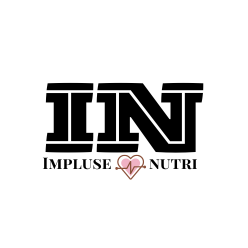Nutrition plays a critical role in achieving your fitness goals, whether you’re looking to lose weight, build muscle, or simply improve your overall health. Here are some essential nutrition tips for fitness beginners:
1. **Balance Your Macronutrients:**
– Protein: Incorporate lean sources of protein like chicken, turkey, fish, tofu, beans, and legumes into your diet. Protein helps with muscle repair and growth.
– Carbohydrates: Choose complex carbohydrates such as whole grains (oats, quinoa, brown rice) and starchy vegetables for sustained energy during workouts.
– Healthy Fats: Include sources of healthy fats like avocados, nuts, seeds, and olive oil. They are essential for overall health.
2. **Portion Control:**
– Pay attention to portion sizes to avoid overeating. Use measuring cups or a food scale if needed.
– Be mindful of calorie intake, especially if you’re trying to manage your weight. Tracking your food can help you stay within your target calorie range.
3. **Stay Hydrated:**
– Drink plenty of water throughout the day. Proper hydration is essential for overall health and can aid in digestion and recovery.
– If you engage in intense workouts or exercise in hot conditions, consider consuming an electrolyte drink to replenish lost fluids.
4. **Eat Whole Foods:**
– Focus on whole, minimally processed foods. These provide essential nutrients and are generally lower in added sugars, salt, and unhealthy fats.
– Limit your consumption of sugary beverages, fast food, and highly processed snacks.
5. **Pre-Workout Nutrition:**
– Have a small meal or snack containing carbohydrates and a moderate amount of protein 1-2 hours before your workout. This will provide energy and support muscle function.
– Examples include a banana with peanut butter, Greek yogurt with berries, or a turkey and vegetable wrap.
6. **Post-Workout Nutrition:**
– After exercise, consume a meal or snack that includes protein and carbohydrates within 1-2 hours. This helps with muscle recovery and glycogen replenishment.
– Good options include a protein shake with fruit, a turkey and vegetable stir-fry with brown rice, or a quinoa salad with chickpeas.
7. **Don’t Skip Meals:**
– Eat regular, balanced meals to maintain stable blood sugar levels and avoid overeating later in the day.
– Skipping meals can lead to energy dips and cravings.
8. **Listen to Your Body:**
– Pay attention to hunger and fullness cues. Eat when you’re hungry and stop when you’re satisfied.
– Avoid eating out of boredom or for emotional reasons.
9. **Plan and Prepare:**
– Plan your meals and snacks in advance to ensure you have healthy options readily available.
– Cooking at home allows you to control ingredients and portion sizes.
10. **Seek Professional Guidance:**
– If you have specific dietary restrictions or goals, consider consulting with a registered dietitian or nutritionist who can create a personalized nutrition plan tailored to your needs.
11. **Be Patient and Consistent:**
– Understand that significant changes in body composition and fitness take time. Stay consistent with your nutrition plan and workouts, and don’t get discouraged by minor setbacks.
Remember that nutrition is a vital component of your fitness journey, and it’s important to find an approach that works for you and is sustainable in the long term. Gradual and sustainable changes to your eating habits will lead to better results and improved overall health.


.png)